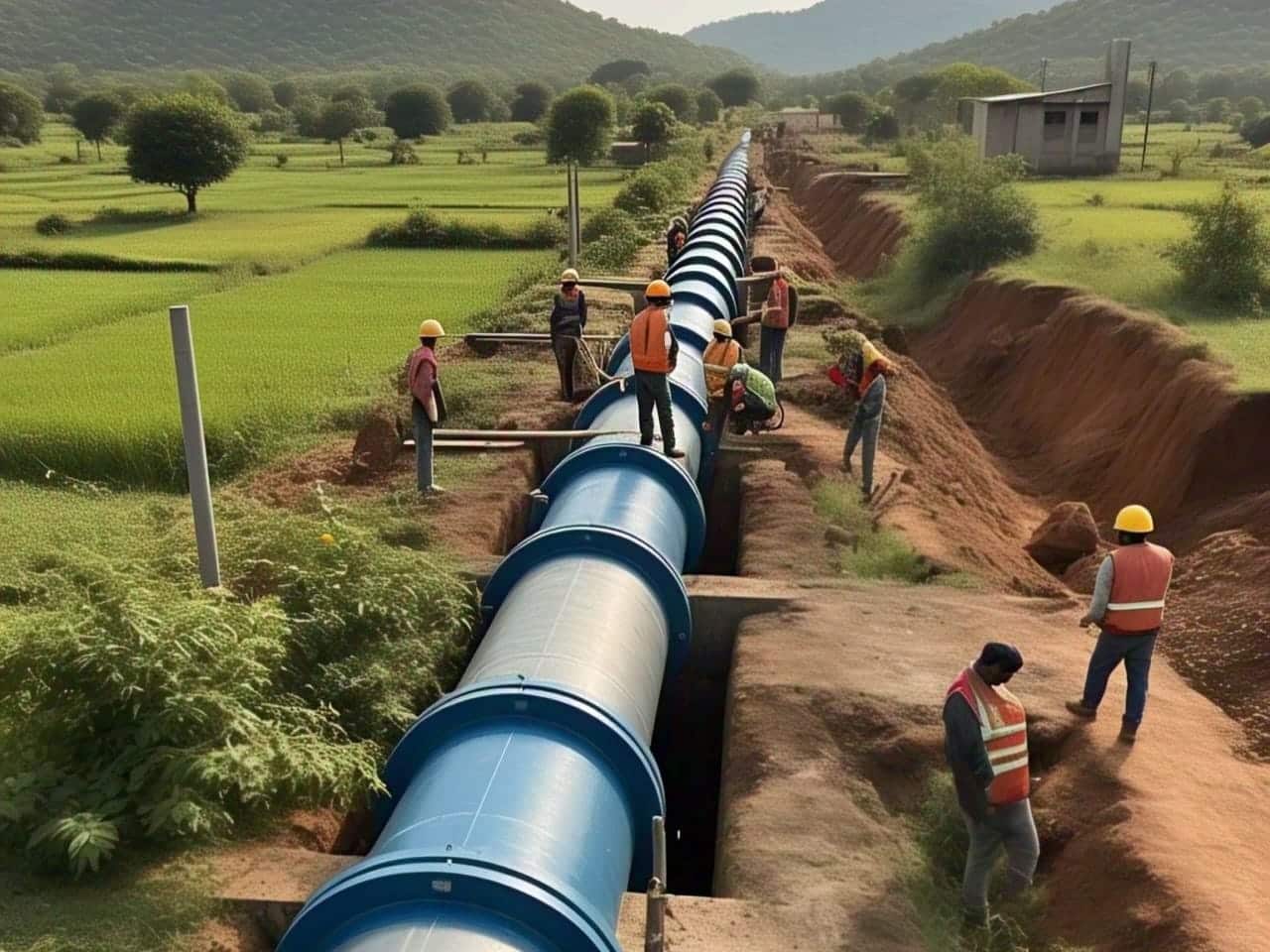Protests Erupt Over Controversial River-Linking Project

In Madhya Pradesh, India, thousands of villagers are raising their voices against the Ken-Betwa river-linking project. This multi-million-dollar initiative, budgeted at 440 billion rupees (approximately $5.06 billion), aims to transfer excess water from the Ken River to the Betwa River through a complex system of tunnels, canals, and a dam. While the government touts the project as a solution to drought in the Bundelkhand region, local residents fear it will destroy their homes and livelihoods. The project has sparked significant protests, particularly among indigenous communities who rely on the land for their survival.
The Ken-Betwa Project: An Overview
The Ken-Betwa project is the first of 16 river-linking initiatives outlined in India’s National Perspective Plan, which dates back to the 1980s. After years of delays due to environmental concerns and political disputes, the government approved the project in 2021. Prime Minister Narendra Modi laid the foundation stone in December of the same year, marking a significant step towards its completion, which is expected by 2030.
The project aims to alleviate water scarcity in the drought-prone Bundelkhand region, which spans parts of Madhya Pradesh and Uttar Pradesh. The government claims that once operational, the project will irrigate 1.06 million hectares of land, provide drinking water to 6.2 million people, and generate 130 megawatts of hydropower and solar energy. However, the plan comes at a steep cost. District officials estimate that at least 21 villages, including valuable forest land, will be submerged to create the dam’s reservoir, displacing over 7,000 families. Many of these families belong to indigenous tribes, such as the Gond and Kol, who depend on farming and the forest for their livelihoods.
Environmental Concerns and Opposition
Environmental experts have raised alarms about the potential ecological impact of the Ken-Betwa project. The construction is expected to submerge nearly 98 square kilometers of the Panna Tiger Reserve, a sanctuary that has successfully rehabilitated the tiger population since 2009. Amit Bhatnagar, an environmentalist, describes the project as unprecedented, noting that it threatens a core area of a national park for large-scale infrastructure.
In 2019, a panel of experts appointed by India’s Supreme Court expressed concerns about the project’s economic viability and its effects on local wildlife. They urged the government to consider alternative irrigation methods instead. A 2023 study published in the journal Nature Communications echoed these concerns, suggesting that river-linking projects could exacerbate water stress across the country. Despite these warnings, Baleshwar Thakur, head of the National Water Development Agency, defended the project, claiming that all necessary environmental clearances had been obtained.
Villagers’ Struggles and Protests
The villagers affected by the Ken-Betwa project are not convinced by government assurances. Many express deep anxiety about their future. In Daudhan, a village marked by poverty and a lack of basic amenities, residents have taken to singing protest songs that reflect their despair. Lyrics like “Ken-Betwa dam is built by the government, it gives others water but drowns us” capture their plight. The villagers question why they must sacrifice their homes for a project that promises benefits to others while they continue to live without basic services like electricity and clean drinking water.
The government has proposed a compensation plan, offering villagers either a piece of land and 750,000 rupees (about $8,655) or a one-time payout of 1,250,000 rupees. However, many locals feel that these amounts are insufficient. Tulsi Adivasi, a villager, showed a government notice that valued his house at just 46,000 rupees, prompting him to ask, “Can a house be built with this much money?” The uncertainty surrounding relocation dates and resettlement locations only adds to their distress.
Source link
Observer Voice is the one stop site for National, International news, Sports, Editor’s Choice, Art/culture contents, Quotes and much more. We also cover historical contents. Historical contents includes World History, Indian History, and what happened today. The website also covers Entertainment across the India and World.

